writing
Latest

CNET has used an AI to write financial explainers nearly 75 times since November
Turns out CNET has been using AI to write financial explainers and only mumblecoughed that it was doing so.
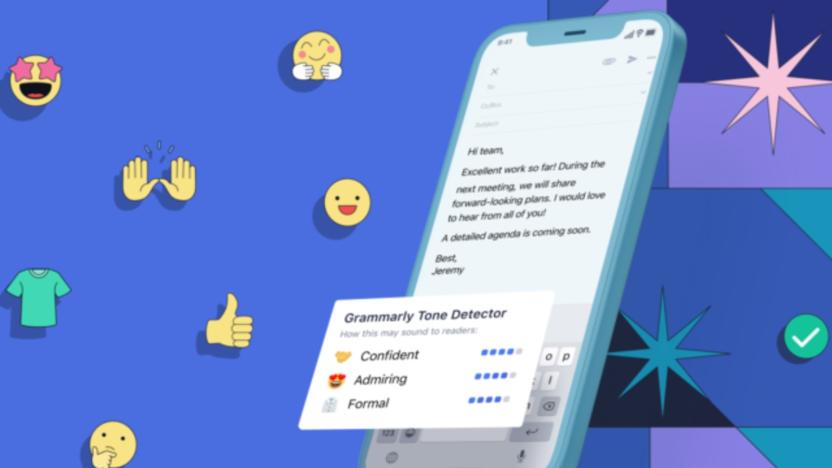
Grammarly's handy tone detector is now available on Android and iOS
Grammarly's mobile keyboard, available through its iPhone, iPad and Android app, will now analyze the tone of your writing to give you a better sense of how you're coming across.

The Freewrite Traveler is a lovely (and flawed) e-ink typewriter
The Freewrite Traveler is a good tool for distraction-free writing on the go, but it's expensive.

The reMarkable 2 is a gorgeous e-paper tablet begging for better software
Still, I'm glad reMarkable put in the work.
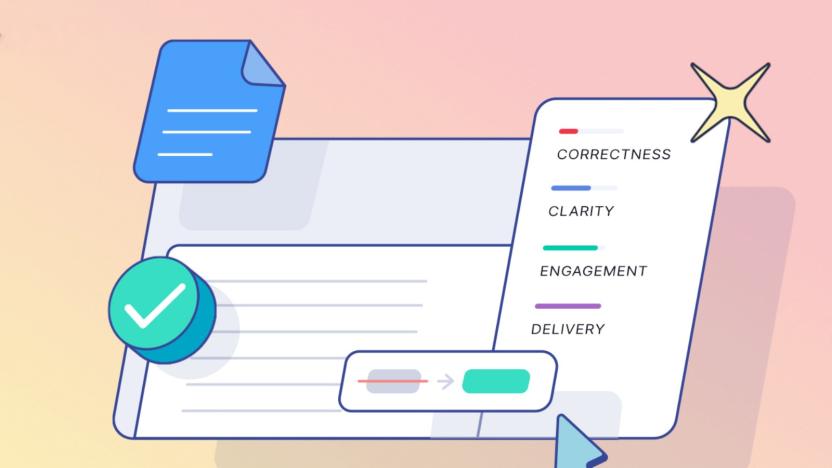
Grammarly's advanced features are coming to Google Docs
Grammarly's Google Docs extension is about to get feature parity with the company's online editor.

Google Docs is adding Spanish-language grammar suggestions
Starting today, Google Docs can make grammar suggestions in both English and Spanish.
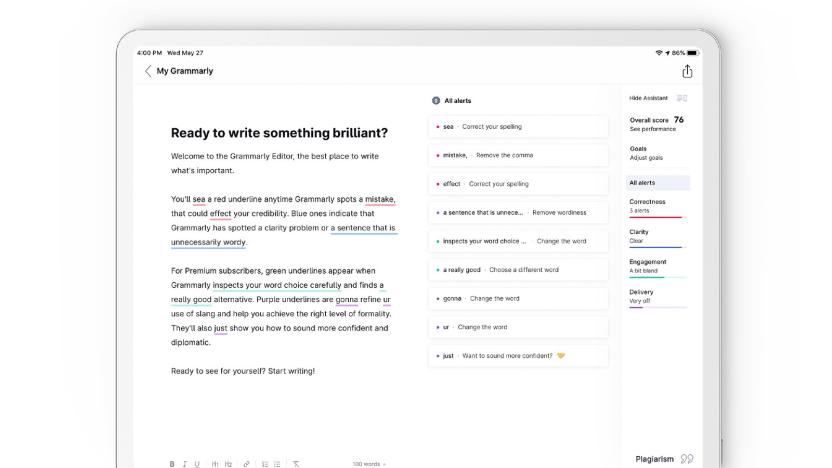
Grammarly brings its most helpful features to the iPad
Copyediting extension Grammarly has a new iPad app that allows you to access some of its most useful online features without launching your web browser.
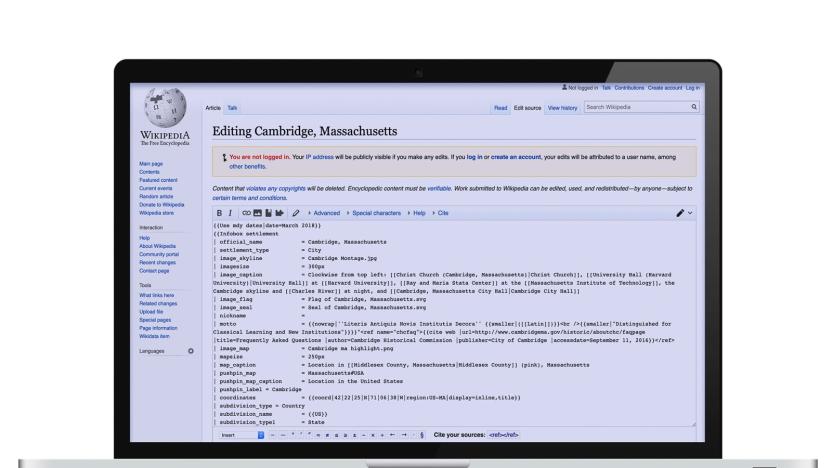
AI can automatically rewrite outdated text in Wikipedia articles
It's good to be skeptical of Wikipedia articles for a number of reasons, not the least of which is the possibility of outdated info -- human editors can only do so much. And while there are bots that can edit Wikipedia, they're usually limited to updated canned templates or fighting vandalism. MIT might have a more useful (not to mention more elegant) solution. Its researchers have developed an AI system that automatically rewrites outdated sentences in Wikipedia articles while maintaining a human tone. It won't look out of line in a carefully crafted paragraph, then.

AI determines how much help Shakespeare had writing a play
Many believe that Shakespeare had help writing at least some of his plays, but to what extent? AI might have an answer. Czech researcher Petr Plecháč has developed a machine learning system that determined which portions of Henry VIII were likely written by Shakespeare's contemporary (and long-suspected collaborator) John Fletcher. The approach trained an algorithm to recognize the word choices and rhythms of both Shakespeare and Fletcher plays from the time (such as The Tempest and Valentinian), and used a "rolling window" technique to study those styles without worrying about the starts or ends of scenes. The results were at once expected and surprising.

Google Docs is getting Gmail's autocomplete smarts
Google hoped to make writing emails a little easier when it added its Smart Compose autocomplete function to Gmail last year. You should be able to take advantage of the helpful feature elsewhere soon, as it's coming to Google Docs, starting as a beta for G Suite users on the web.

Grammarly's keyboard suggests synonyms to make you feel smart
If you ever struggle to find the mot juste when texting your friends, Grammarly might just have your back. Its mobile keyboard for Android and iOS now suggests synonyms while you're typing, giving you a handful of words that might be appropriate -- or apt, or fitting, or suitable. You can wish a friend a splendid day when "good" is just too dry, or show contrition when saying "sorry" doesn't seem sincere enough.

Samsung crams 100 layers and more speed into its latest SSD
Samsung has started mass production on solid state drives (SSDs) that feature the company's sixth-generation 256GB three-bit vertical NAND memory. This means the drives come with an industry first 100 layers of NAND cells, a writing speed of 450 microseconds and a reading response time of 45 microseconds. Compared to Samsung's previous 90-layer SSDs, performance is up 10 percent and power consumption down 15 percent, according to the company.

Grammarly's color-coded AI suggestions show what needs fixing
Grammarly revolves around AI-based writing suggestions, but now it's giving you an at-a-glance way to see what needs improving. The service's browser and desktop app editors have been updated with color-coded AI suggestions that revolve around four categories. Red underlines point out basic issues of correctness, such as spelling and grammar. Blue addresses clarity problems like concision and difficult-to-read sentence structure, while purple offers advice on the tone of your piece. You'll even see progress bars that show how close you are to refining your writing in a given category.

Microsoft Word uses AI to improve your writing
Microsoft is about to challenge Grammarly (not to mention Google) on its home turf. The company is developing an Ideas feature for Word's online version that uses AI to suggest grammar changes, among other assists. In addition to catching basic errors, it can recommend rewriting phrases to improve concision, clarity and inclusiveness. Your report might be more to-the-point without requiring quite so much proofreading.
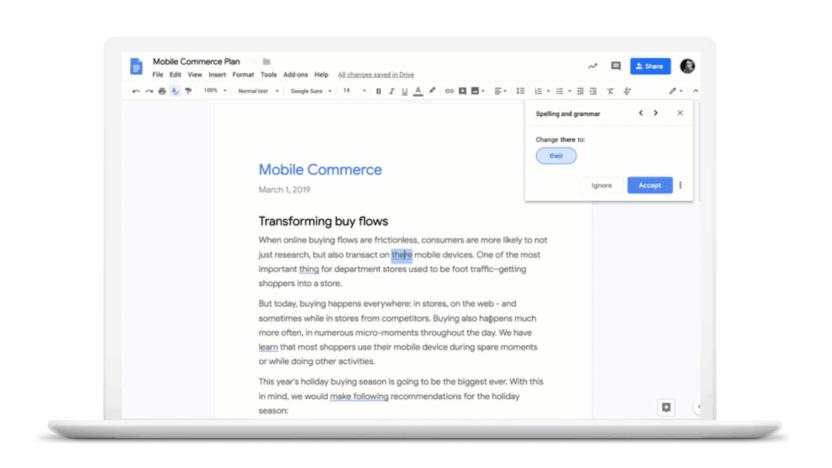
Google Docs' AI grammar checker rolls out to G Suite users
Google Docs' AI grammar suggestions are no longer limited to early adopters. The company is rolling out the machine learning tool for G Suite users, giving them an easier way to polish their reports. As Google outlined last year, this isn't a spelling checker with some grammar rules thrown in. The machine translation tech at the heart of the suggestions can detect nuances in grammar, whether it's a simple matter of word choice (like "their" versus "there") or the proper use of a subordinate clause.

E Ink display lets you write on it as if it were paper
You can already get e-paper notepads that come close to replicating the feel of writing on dead trees, but E Ink thinks it can do better. The company has unveiled a new film, JustWrite, that promises more natural scribbling. It doesn't require a backlight or another display layer, and there's "almost no" lag. You won't have to strain your eyes or second-guess your drawing. The technology is also bendable, works with virtually any size and shape, and needs just a basic stylus as well as some basic electronics -- it shouldn't carry a significant premium.
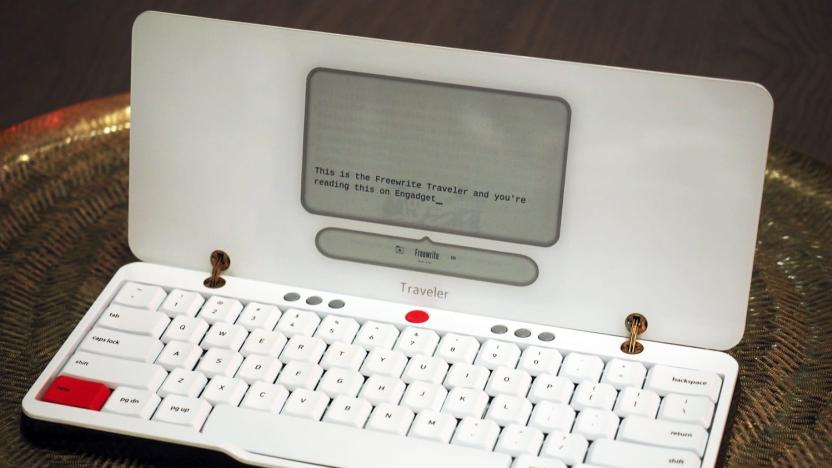
The Freewrite Traveler lets authors battle writer’s block outside
Many authors can attest that writing isn't as simple as just sitting down at a computer and typing. A typical day might go more like this: Check email, look at Facebook, tweet. You know, anything but actual writing. Astrohaus' Freewrite E Ink typewriter was designed to combat these distractions by removing the internet from your view entirely, though you could still save your files digitally. However, its clunky console had nothing on the portability of a laptop. But this spring the company will ship the Freewrite Traveler, a lighter clamshell model that lets writers easily take their craft wherever the mood strikes them.

Google Docs uses AI to catch your grammar mistakes
You no longer have to turn to tools like Grammarly if your Google Docs output lacks polish. As part of a sweeping set of updates aimed mostly at G Suite users, Google has introduced grammar suggestions to Docs users involved in its Early Adopter Program. The addition uses machine translation to spot everything from basic grammatical goofs (such as "a" instead of "an") to larger issues with sentence structure, including subordinate clauses. The AI nature of the checker should help it adapt over time and catch "trickier" issues.

AI can write surprisingly scary and creative horror stories
Writing and creativity may be traditionally thought of as the domain of humans, but AIs are making strides in this area. We've previously covered how the UK Press Association is handing off writing duties in newsrooms to robots, thanks to Google, and even how a robot wrote for Engadget. Now, there's an AI named Shelley (after Mary Shelley, who wrote Frankenstein) who can write pretty incredible horror stories.

Sci-fi author and tech advocate Jerry Pournelle dies
The science fiction and technology worlds are poorer off this weekend, as author Jerry Pournelle has died at 84 after a sudden illness. He was best-known for collaborating with Larry Niven on classic novels like The Mote in God's Eye, but he's equally known as a strong advocate for technology and spaceflight. Significantly, he's widely credited as the first major author to write a published novel entirely on a computer. He bought an extremely expensive ($12,000 in 1977 dollars) machine anticipating that it would let him edit and correct mistakes far more quickly than with a typewriter. While it's virtually a given that authors will write with computers these days, Pournelle spurred many of his peers to buy PCs and ultimately usher in an era of digital writing.







